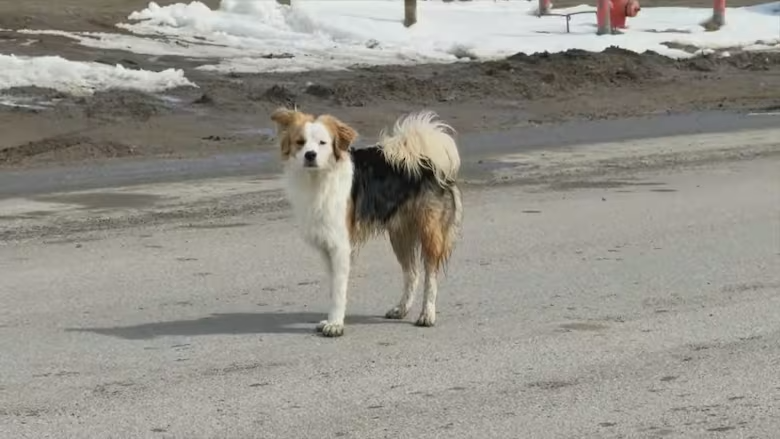Iqaluit running out of dog tags after changing rules for killing loose dogs

Recent amendments to a city bylaw allow staff to kill loose dogs 24 hours after they’re captured
The City of Iqaluit says there’s been a significant uptick in registration for dog tags following new amendments to a bylaw that allows the city to kill loose dogs within a shorter timeframe.
The amendments, passed June 10, give the city authority to kill loose dogs 24 hours after they’re captured — down from the previous holding period of 72 hours. In a news release Wednesday, the city said the change has led to a surge in dog tag registrants in the past several weeks — more than in the previous two years combined.
So far in 2025, the city has issued 264 dog tags, with 173 of those in the last two months alone. In 2024, the city issued only 151.
“Every tag helps keep dogs safe by making it easier to identify them and return them home if they get lost,” the city wrote in the release, adding that city staff have also noticed more community members sharing “found dog” notices on social media, checking with neighbours, and making broader efforts to reunite pets with their families.
“These actions are a clear reflection of the compassion and care that exist in our city. This moment represents more than just an increase in dog tag requests. It reflects a broader shift in how we, as a community, are engaging with pet ownership by showing greater responsibility and awareness.”
Safety means changes necessary: mayor
Iqaluit Mayor Solomon Awa said the changes are for the safety of the community.
“We receive a lot of complaints from residents that the people being scared of the dogs and dogs being loose all the time and we’re not doing anything about it,” he said, adding that families and children want to be able to play outside without fear.
But some residents have spoken out against the changes, saying they lack compassion.
Murielle Jassinthe is a dog-owner in Iqaluit. She said her dog Lola went missing twice while she was in Toronto for medical travel.
“I can’t even imagine Lola being taken away from me,” she said. “I rescued her for a reason and now her life is in jeopardy. That’s horrible.”
The 24-hour holding period extends to 72-hours on holidays and weekends. The bylaw also states that the city will make “reasonable attempts” to contact owners and return dogs to their homes.
The city wrote that it’s nearly out of tags, with only 24 remaining. While the city waits for a new order, it’s encouraging residents to use other identification methods like third-party tags or writing contact information directly onto collars.
“This small step makes a big difference for both pets and their families,” the city wrote, adding that staff would post on the City of Iqaluit website and social media channels when more tags become available.
With files from Mah Noor Mubarik
Related stories from around the North:
Canada: Vet clinic under construction in Kuujjuaq will be game changer, says project leader, Eye on the Arctic
Greenland: Study explores ties between Greenland sled dogs and arctic wolves, Eye on the Arctic
Finland: Duo aiming to raise funds for jobless sled dogs in Arctic Finland, Yle News
Norway: Finnmarksløpet: Travelling with dogs is true freedom, The Independent Barents Observer
Sweden: Siberian huskies, Greenland sled dogs share DNA with today’s canine companions, Radio Sweden



